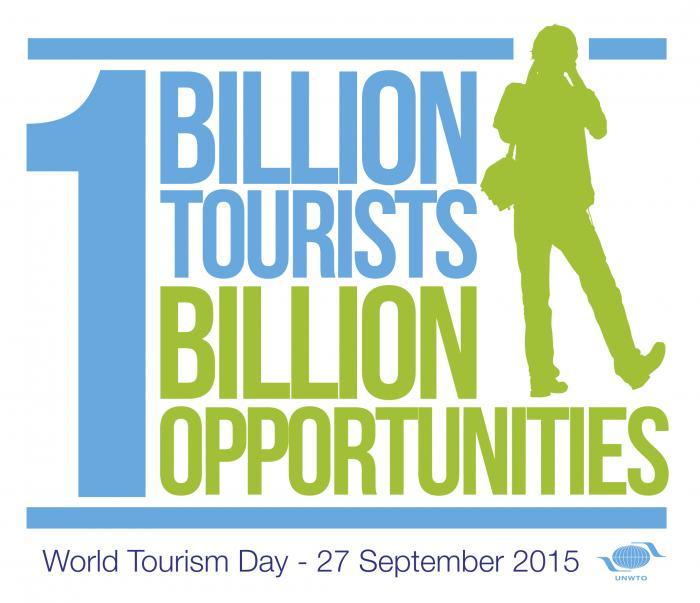
World Tourism Day 2015 – The power of tourists
“One Billion Tourists – One Billion Opportunities”: The motto of this year’s world tourism day on 27 September brings home the huge influence of tourism on a sustainable global development and thus, the responsibility of all those involved – travellers, tourism industry and, not least, policy-makers.
The rapidly growing number of tourists presents us with the challenge to steer tourism development in an ecologically and socially sustainable direction. Tourism is already responsible for a considerable amount of the worldwide greenhouse gas emissions. Air traffic generates at least 5 % of man-made global warming – although only 2 % of the global population actually travel by air. There is a general trend towards an increase in air traffic over the next years.
The people that suffer from this development are people in countries of the Global South, which are hit especially hard by the consequences of climate change. Additionally, tourism has a direct impact on the local environment: rich natural landscapes are sacrificed to touristic infrastructure, growing mountains of rubbish are disposed of in an environmentally unfriendly way, and precious water resources are wasted in order to provide tourists with comforts that are the exact opposite to the living conditions of the local population.
Riding roughshod over human rights
At the same time, human rights are still neglected in the tourism sector all too often: Children have to work in restaurants instead of attending school. Fishermen lack access to the sea because of hotel-owned beaches. Women earn less than their male colleagues and have next to no career opportunities. Service staff has to work 12 hours without a break.
This is where tour operators need to take action! Observing human rights, just as respect for our natural resources, is no passive responsibility. It has to be integrated systematically in all entrepreneurial processes. But the tourists can also actively contribute to socially and environmentally sustainable tourism. “We can all make responsible choices of tour operators and accommodation and in the way we travel. Thus, we can contribute to improving the conditions of the population living in the destination and keep negative ecological and social impacts of our journey to a minimum” says Andrea Lichtenecker, executive director of Naturefriends International – respect.
Knowing and acting
Naturefriends International (NFI) have been championing ecologically, socio-culturally and economically sustainable tourism, which provides the population in the destinations with economic opportunities, for years. Target-group specific information, which helps travellers and tour operators to act sustainably, plays an important role. For example, the video “Human rights in tourism” by NFI-respect, Junge Meister and the forum anders reisen explains in a nutshell how tour operators can act on their human rights responsibility and how travellers can contribute, too. (video on youtube, german with englich subtitles )
Initiative to respect human rights in tourism
NFI is one of the founding members of the “Roundtable Human Rights in Tourism”. This multi-stakeholder initiative considers itself an open platform to advance human rights in tourism. It provides incentives for enterprises, organisations and institutions that are campaigning for the respect of human rights in tourism. The UN Guiding Principles on Business and Human Rights, which describe human rights due diligence of enterprises, serve as an orientation for the activities of the Roundtable.